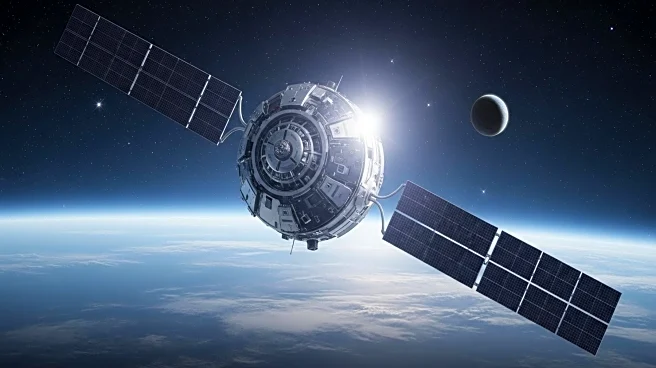What's Happening?
The United Nations is grappling with the evolving challenges posed by the militarization of outer space, as highlighted in a recent report. The Outer Space Treaty, established during the Cold War, aimed to ensure that space activities were conducted for the benefit of all humanity. However, the treaty's provisions are increasingly seen as inadequate in regulating modern military space programs. Middle powers like France, India, and Japan have expanded their space operations, contributing to strategic military dominance. The development and testing of anti-satellite weapons (ASATs) and the establishment of military space commands have transformed space into a contested arena. Former Acting U.S. Defense Secretary Patrick Shanahan emphasized the shift, stating that space is now a warfighting domain. This situation has led to a security dilemma, where spacefaring states feel compelled to develop their space forces to counter perceived threats, eroding the foundations of existing governance frameworks.
Why It's Important?
The militarization of space has significant implications for global security and the reliability of civilian infrastructure. The proliferation of kinetic and non-kinetic ASAT weapons increases the risk of space debris, which poses a threat to satellites and other space-based systems. This debris can lead to accidental collisions, affecting services like GPS and weather forecasting, which are crucial for various sectors, including agriculture and emergency response. The commercialization of space, with companies like SpaceX deploying extensive satellite constellations, further complicates the management of debris and increases the likelihood of collisions. The strategic importance of civilian satellite infrastructure in warfare, as seen during the Ukraine conflict, underscores the dual-use nature of these assets, complicating international law and exacerbating tensions.
What's Next?
The United Nations and other international bodies face the challenge of updating and enforcing space treaties to address the current realities of space militarization. The establishment of the U.S. Space Force and similar military space organizations by other countries reflects the need for coordinated efforts to manage space security. The Artemis Accords, signed by NASA and other space agencies, aim to reinforce commitments to responsible space exploration, but the exclusion of major powers like Russia and China indicates ongoing tensions. The UN Security Council's failure to adopt resolutions on preventing nuclear weapons in space highlights the difficulty in achieving consensus. Without urgent regulatory intervention, the risks posed by space debris and accelerated satellite deployment could lead to catastrophic failures in global communication systems.
Beyond the Headlines
The militarization of space raises ethical and legal questions about the use of space for military purposes. The Outer Space Treaty and other agreements lack enforcement mechanisms, making compliance voluntary. The outdated provisions of these treaties do not account for new arrangements proposed by private space companies, creating loopholes for the installation of conventional weapons on satellites. The exclusion of Russia and China from the Artemis Accords exacerbates tensions and distrust, leading to greater weaponization of outer space. The potential for miscalculation in space grows as more actors enter the field, increasing the risk of large-scale disruptions to critical infrastructure.









